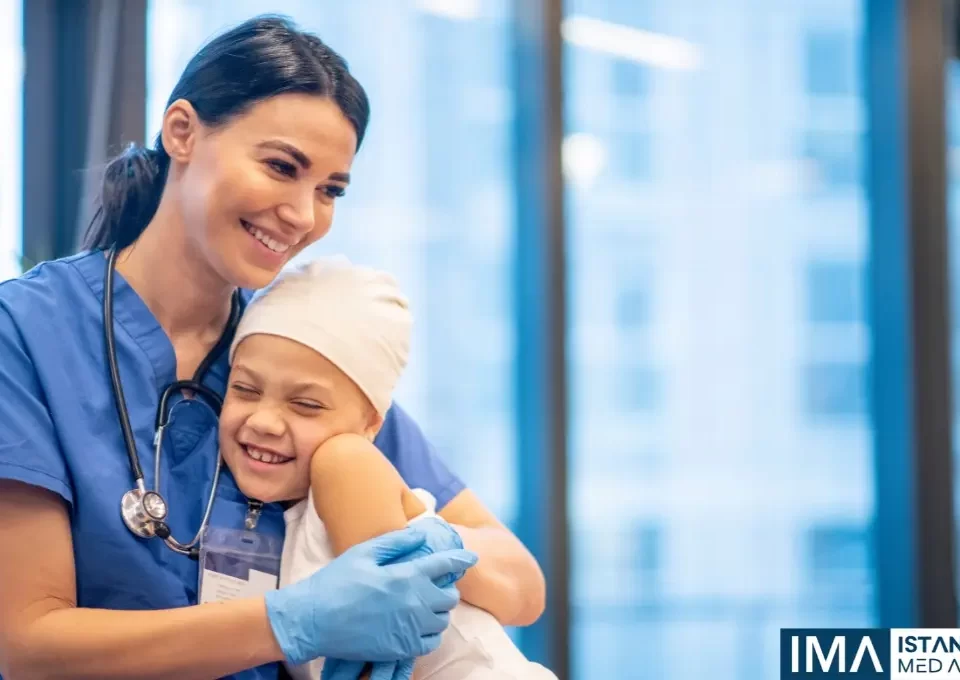A bone marrow transplant is a procedure doctors carry out to replace the blood-forming components in a patient's bone marrow. However, for better understanding, we may need to define some concepts. The bone marrow is a house or storage for blood-forming elements in our bodies. Bone marrow is the spongy tissue in the hollows of long bones. In adults, bones like the femur, vertebrae, Iliac bones (hip bones), and the sternum/ chest bone have competent bone marrow.
There are cells (basic, functional units of life) that form the blood and its components. Hematopoietic stem cells form the blood, and their components are hematopoietic stem cells (HSC). HSCs are responsible for producing and replacing blood and its components.
Component of the Blood
Generally, the blood is composed of cells and fluid. The cells are of three types: red blood cells/ erythrocytes, white blood cells/ leukocytes, and platelets/ thrombocytes. The liquid that makes up the blood is plasma. Research studies suggest that organic salts and inorganic acids are present in the plasma.
The red cells/erythrocytes help carry oxygen from the lungs to the necessary tissues and organs. The white blood cells/ leukocytes constitute a significant part of the immune system. They help to fight diseases and infections. The platelets/ thrombocytes help to prevent excessive bleeding. They are responsible for clotting blood. The plasma (fluid component of the blood) helps transport nutrients to the organs needed. They also carry toxic wastes to excretory organs like the kidneys.
Furthermore, the stem cells produced by the bone marrow can develop into any of these three (3) cells. Genetic or environmental conditions might cause disease in the bone marrow. Therefore, the bone marrow may require a replacement, and new stem cells will be produced.
What are the types of Bone Marrow Transplants?
There are two types of bone marrow transplants.
- Allogeneic
- Autologous
Allogeneic bone marrow/stem cell transplant
"Allogeneic" means that the bone marrow cells come from a donor. This means that the new stem cells will come from another person. The donor could be a family member, someone you're close to, or someone you don't know. In addition, your doctor can collect HSCs from the donor's blood. New blood stem cells can also be collected from the umbilical cord. Allogeneic transplants can help treat leukaemia, lymphoma, Aplastic anaemia, and even sickle cell anaemia.
Autologous bone marrow/stem cell transplant
"Autologous" means from yourself. It means that the doctor uses healthy stem cells from your body to replace your diseased bone marrow cells. Your doctor will collect healthy cells, freeze them, and store them for future use.
When do I need a bone marrow transplant?
There are a few indications that the doctors look at before determining whether you need a transplant. Generally, people who have some diseases called blood cancers. Some other benign (non-cancerous) conditions also require bone marrow transplants.
Here are a few of them:
- Aplastic anaemia (bone marrow failure): when the bone marrow fails, there is a need for a replacement.
- Leukaemia ( a type of cancer of the white blood cells): Cancer of the white cells is an essential indication for transplant.
- Lymphoma: Lymphoma is another type of cancer affecting white cells. All forms of cancers affecting white cells are essential indications for a transplant.
- Sickle cell anaemia: Sickle cell anaemia is a disorder of the red blood cell that may need a transplant.
In addition, other indications include:
- Hemoglobinopathies
- Immune deficiencies
- Multiple myeloma
- Plasma cell disorders
However, if your doctor diagnoses you with these conditions, you might need a bone marrow transplant.
How can you prepare for a bone marrow transplant?
A regular visit to the hospital would precede the bone marrow transplant. Furthermore, your healthcare team will conduct tests to assess your general health. However, this evaluation and examination can take a few days. In addition, your doctor will pass a central line (intravenous catheter) into a vein from your neck or the chest. This main line is given some days before the transplant. Your doctor will transfuse the stem cell into you through this central line.
Before the stem cell transplant, your doctor will collect blood from the donors (allogeneic) or you (autologous). Doctors often carry out autologous transplants through a process called Apheresis. However, blood from the vein is passed directly through a machine during Apheresis. They will separate the blood into different components and cells. Furthermore, your health practitioner will store and freeze the stem cells for use. Other cells and fluids are returned to the body.
How is a bone marrow transplant done?
Generally, a bone marrow transplant itself is not a complex procedure. Stem cells are infused into the bloodstream just like any other intravenous fluid. The stem cells usually take about one week (1 week) to find their destination- the bone marrow.
They manufacture new cells (red, white, platelets) in the bone marrow. The patient's marrow begins to produce new cells. But before then, the doctor will look for ways to protect the patients from infections and activities that will cause bleeding.
Generally, patients will undergo close monitoring for about 3 – 4 weeks before discharge. The healthcare team will also ensure close monitoring of the patients after discharge.
What are the Advantages of having bone marrow transplants?
Bone marrow transplants have a lot of advantages for their recipients. Some of them include:
- It helps to cure some cancers and help some go into remission
- Autologous bone marrow transplants have a lower risk of transplant rejections.
- It helps to give the patients new cells that fight cancer cells.
- People who receive bone marrow transplants can live for additional years.
What are the disadvantages and side effects of having a bone marrow transplant?
Generally, the side effects of having a bone marrow transplant might outweigh its advantages. But, it is worth a trial. However, there are serious risks associated with transplants. Some people may experience mild side effects, while others experience severe side effects.
Here are a few side effects that we may notice in people who receive bone marrow transplants:
- Stem cell transplant failure: The stem cell transplant may fail for different reasons. There is a huge possibility of this in bone marrow transplants.
- Graft versus Host disease: Your body may see the new stem cells as foreign and reject them. Some symptoms are joint and muscle pain, weakness, shortness of breath, diarrhoea, nausea, and vomiting.
- Organ damage: some organs like the liver, eyes, and kidneys can be damaged due to a bone marrow transplant.
- Infections: Infections are a common complication of surgical procedures. Infections can also arise from marrow transplants.
- Death: death is the ultimate side effect of bone marrow transplants. Some people may not survive the procedure, and they eventually die.
- Other side effects can be infertility, cataracts, some other cancers, anaemia, and hair loss.
How much does a bone marrow transplant cost?
Bone marrow transplant costs a lot. Bone marrow is one of the most expensive medical procedures around the world. Typically, bone marrow transplant prices differ depending on the type of stem cell transplant.
However, autologous stem cell transplants usually cost less. This is because the patient's healthy stem cells are used. However, allogeneic stem cell transplants cost more than autologous transplants.
Allogeneic transplants cost more because donors need to undergo specific tests and evaluations. The doctor will remove stem cells from the donors and keep them adequately before use. Other miscellaneous costs, including hospital admission costs and storage of stem cells, contribute to the high price of bone marrow transplants.
Conclusion
Lastly, researchers indicate that a bone marrow transplant is the only cure for some blood cancers. Although, it is an expensive procedure and has many side effects. However, your healthcare team will help you make the right decisions if you require further evaluations.
Frequently Asked Questions (FAQ)
Stem cells come from three different sources.
- Blood: Stem cells are circulating in your blood. Before autologous stem cell transplant, some drugs are given to help your bone marrow produce more stem cells in the blood. These stem cells are taken from your blood through Apheresis. Your doctor will separate the stem cells from your blood and store them.
- Bone Marrow: Sometimes, doctors remove stem cells from the bone marrow through surgical procedures.
- Umbilical cord: The umbilical cord is a rich source of stem cells.


